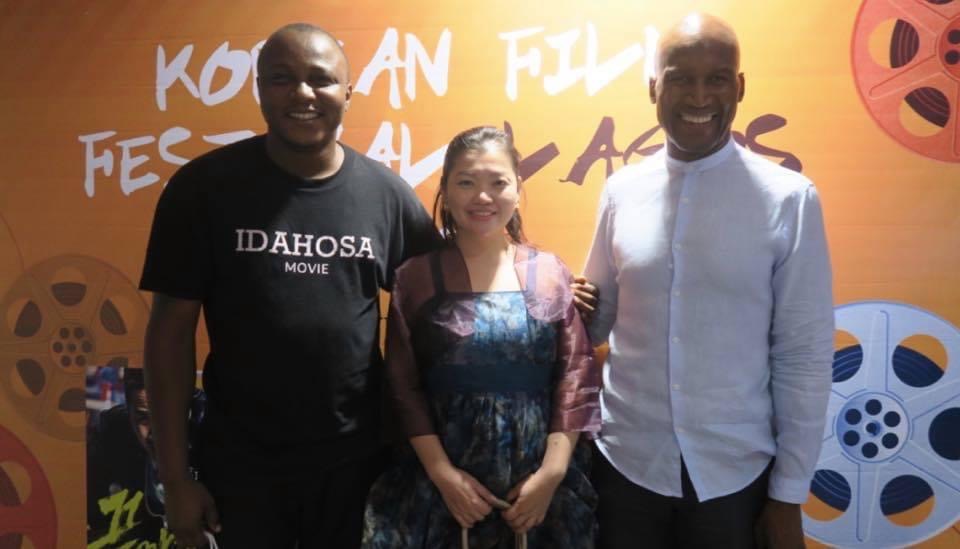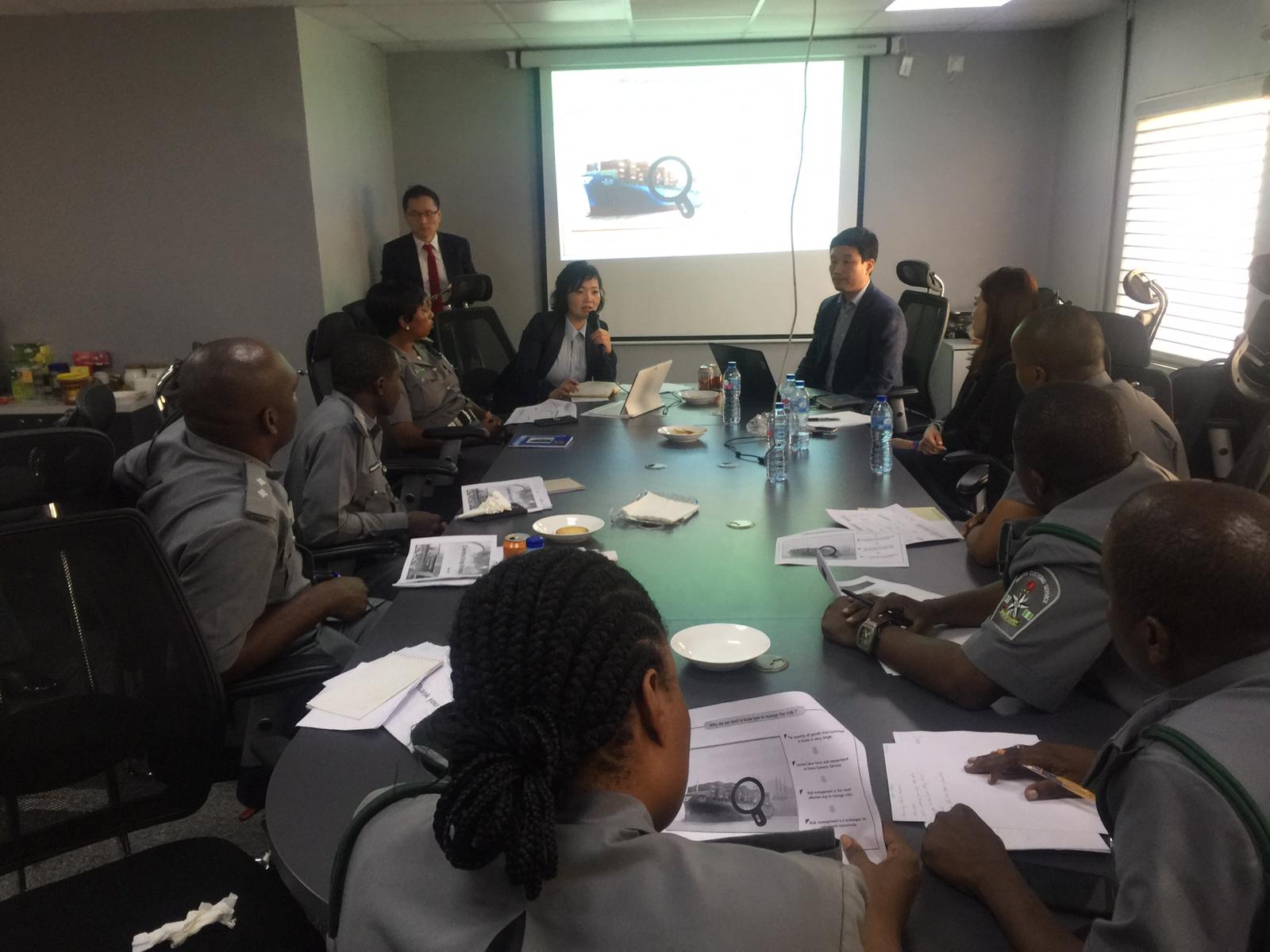
Diversity Matters - Interview of Ryu Jeesun (2021 MDP)
- Date 2021-11-30 06:43
- CategoryStory
- Hit1887
1. Greetings! Could you please tell us about yourself and share an interesting fact with our readers?
My name is Ryu Jeesun, but people call me “Naomi.” I''m a part-time 2021 MDP student. I’m working as a consultant for a quasi-government agency that is run by the Korea Customs Service. Currently, I’m in Ghana to help implement the customs clearance system project for the Ghana Revenue Authority. An interesting fact about me is “Africa.” I have visited 10 African countries over the last decade, and I lived in Nigeria for seven years. These experiences have completely transformed my life. Three years ago, I returned to Korea. My KDIS friend from Liberia calls me their “Pan-African friend,” and most of my friends at KDIS regard me as more of an African than a Korean.
On top of it, I experienced Africa on my own, not as a visitor or an expatriate. I moved to Nigeria through a Korean company at the beginning and started my own business. Then, I extended my reach to various sectors as a consultant, coordinator, and entrepreneur. In addition, I’m a blogger and columnist who writes about politics and economics in African countries so that I can introduce various aspects of Africa to Koreans.

2. How do you combine study with work?
Now, I understand the challenges of African students at KDIS down to the bone, and I see how painful it is to take classes at 5 a.m., study until midnight, and still have to work during the day. I jokingly tell my friends in Korea, “I’m taking classes from my home country.” Every morning, I just pray that I can make it through the day. However, there are also a lot of positives. All my classes are directly related to my experience and the current work I’m doing. The close interaction with professors and classmates restores my energy and helps me think outside of the box. Ironically, the challenges I''m currently facing also give me the strength I need to be stronger and wiser.
3. Please share with us what diversity, equity, and inclusion mean to you and why they’re important.
The beauty of people is that there is no one in the world who is just like you, and no one is perfect. That’s why we need diversity to complement each other, to better ourselves, and to create a better world. In order to embrace diversity, we need to first embrace the basic principle of respecting each other, so no one is sidelined. I think equity and inclusion have to be a common goal for all of us to live in this diverse world. Facebook connects us to the world technically, but it doesn’t teach you how to open your heart to different kinds of people automatically.
As a Korean, I think diversity is the value Koreans need the most. It''s not something that was valued throughout our history, because we are a small, one-tribe, one-language country. “Union” was prioritized over “Diversity” to defend ourselves from the powerful countries surrounding us, like China, Russia, and Japan. Nowadays, physical borders are not really meaningful anymore. We have great systems and technology, and our target is the world audience. For Korean companies and organizations to become more competitive and sustainable, I think we desperately need to open up to diversity.

4. In your opinion, what is the most challenging aspect of studying/working in a diverse environment?
The biggest obstacle is the “perspective” and “ego” we all have inside our hearts. I was confronted by these words in Professor Dong-young Kim’s class. Our eyes are blinded by our prejudices and our biased perspectives. They are also reinforced by our previous experiences, causing us to judge other people as "wrong" or "bad" while supposing that only you are right and good. In fact, we are all afraid of losing the principles we believe to be right for our lives and creating new standards from the ground up.
There are massive differences between African countries and Korea, in terms of historical background, culture, environment, and more. Particularly, in government projects, Koreans are apt to fall into the trap of believing that we are right because of how we are advanced in many ways. However, it doesn’t mean that our standard will work out everywhere. We have to learn about other types of best practices and think about how to apply our system and technology to developing countries with their standards. Meanwhile, in Africa, people are diverse, but they are still divided in many ways, with different interests. It makes it difficult to set up a common principles that allow us to move forward.

5. What are you passionate about?
I love achieving something good for the greater "us" and to make tomorrow better than today.
My best friend says, “We are all striving to save each other.” Every day, we face invisible battles in us and around us. I want to give someone in need a small hand, just like so many people have done for me.
6. What motivates you? Where do you see yourself in five years?
Africa. Maybe it''s because Africa is very complicated and still difficult for me.
I have a lot of mixed emotions about Africa, because it has not been an easy journey, but it always gets my heart pounding. I want to explore the world more, especially Latin America and Central Asia, but I am who I am today thanks to Africa. It is my world and is ultimately the stage I want to play my role on.

7. Thank you so much for your time and for doing this interview. Do you have any message for our readers?
Thank you for reading my story. I met great friends from all over the world and life-changing professors at KDIS. See you all in December!
Related News
-
Research and Education7 days ago
Republic of Korea Economic Bulletin, May 2024#KDI #Economic #KDISCHOOL #kdischool #Economic Bulletin #Research
-
Research and Education35 days ago
Republic of Korea Economic Bulletin, April 2024#KDI #Economic #KDISCHOOL #kdischool #Economic Bulletin #Research
-
Research and Education63 days ago
Republic of Korea Economic Bulletin, March 2024#KDI #Economic #KDISCHOOL #kdischool #Economic Bulletin #Research
